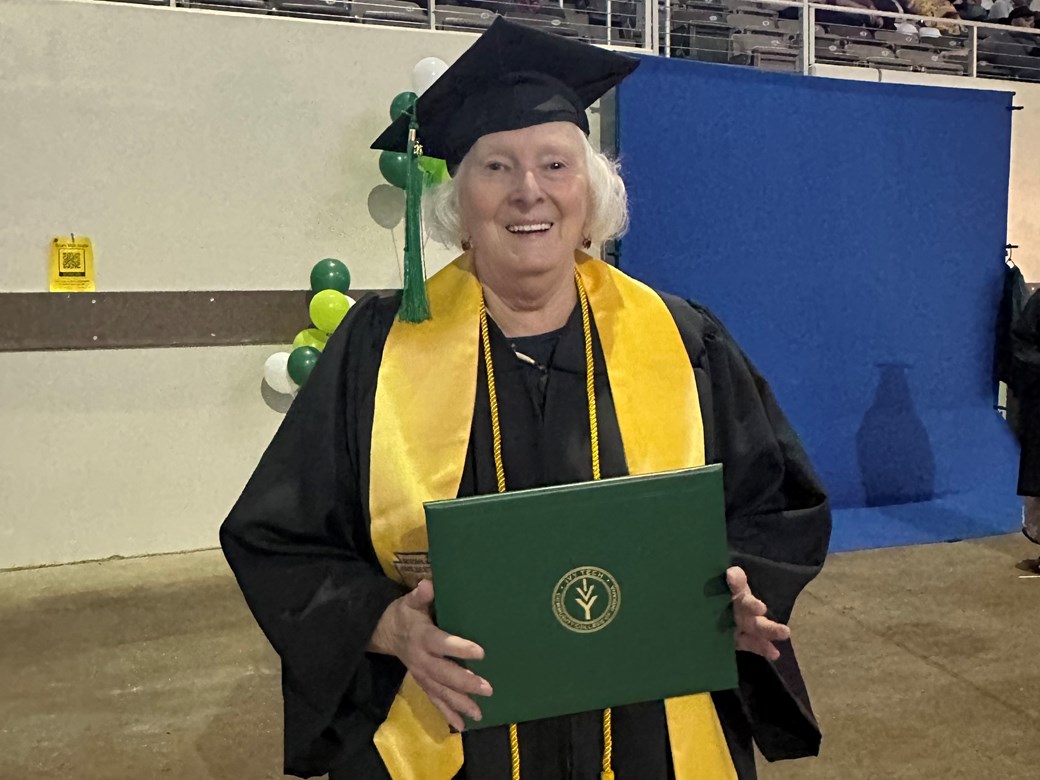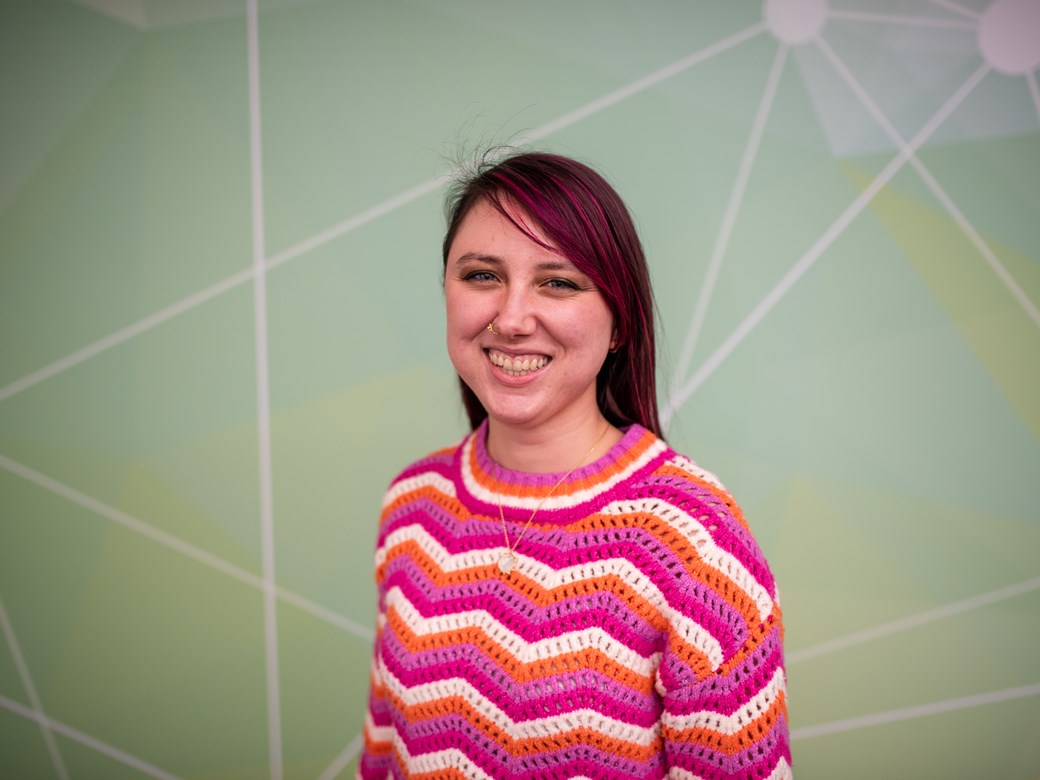Over the last six years, MATH 123-Quantitative Reasoning at Ivy Tech Community College-Indianapolis has had a complete overhaul.
Ivy Indy’s Mathematics Department, led by Dorcas Parson, the department chair and an associate professor, set out to do two things in 2017:
- Find an effective and efficient online platform for the MATH 123 course.
“There were no virtual modalities of MATH 123. There were no online classes for it. It was all in person. And it was paper and pencil tasks; paper and pencil homework. There was nothing online,” Parson said.
2. Increase MATH 123’s successful completion rate.
“A lot of students that take MATH 123, that's their terminal course; that's the last course they need before they get their degree,” Parson described. “Anecdotally, students wait until the very last semester to take their math course because they're just scared to death of it. And so to be able to sit there and move these students forward is something that's very important to all of us in the department. We want our students to succeed.”
Finding the virtual platform that resonated well with Ivy Indy students taking MATH 123 went hand-in-hand with the steady incline of successful completion rates over the last six years.
Through trial and error, the math department landed on Knewton Alta as its MATH 123 virtual modality. Since 2018, the course’s successful completion rate has jumped from 55.24% to 78.9% completion rate in the spring 2023 midterm.
“That’s huge!” Parson says. “We certainly saw big, big improvements.”
The Trial & Error
Parson and the mathematics department researched several platforms beginning in the 2015-16 academic year to pursue the best higher education platform for quantitative reasoning courses.
By 2017 they started giving programs like Pearson, Cengage, and Canvas a try with MATH 123.
“We sat down and had them come in and do demonstrations for us,” Parson said.
First, a colleague built MATH 123 in Canvas. This worked great until the department realized every student was working with the same numbers in an equation. “There was no generating numbers to make it unique for each person. We thought, ‘Nope.’”
So they moved on to Pearson who the math department used for about two to three academic years until Parson says they realized Pearson’s “Help” modules were “a good thing in many ways, but it can also be a bad thing in many ways.”
The Ivy Indy Math Department found that when students utilized Pearson’s help modules, it showed them how to solve a problem in a specific way. “And then when the question changes, the students don’t know how to do it," Parson said.
“This was right as we were coming out of the pandemic, and we were like, ‘No, this isn't working for us.’ You know, we're getting a little bit of increase, but we're not really getting the increase that we wanted,” Parson said. “So we went back to the drawing board.”
Back at square one, the math department began researching platforms again and requested another demonstration. This time around, Knewton’s latest software update stuck out to the Ivy Indy team.
The remediation in the Knewton software made all the difference for the MATH 123 instructors and students.
“For instance,” Parson said, “The students will get the lecturing from their instructor, and then they're required to watch a video before they can start the homework.”
Parson says Knewton’s remediation with each question itself has also been a game changer in helping students figure out what exactly they need more assistance in understanding.
Parson says she had a student, for example, who was working on conditional probability, and she kept getting the wrong interest. “I sat down and worked with her through it; she was rounding it wrong. So instead of Newton taking her back to conditional probability, they took her back to rounding. It gave her a couple of problems that said, ‘round this, round that,’ and then they moved her forward,” Parson explained.
The math department did a relatively large pilot of Knewton and had about six to eight classes utilizing Knewtown for MATH 123 in spring 2022.
“We saw the success then. But when you do that, you just don't know if that's just a fluke,” Parson said.
Then in the fall of 2022, the math department implemented Knewton across the board.
“We saw big improvements in the educational world,” Parson said. “We’re talking about 10-15 points.”
Parson received the Ivy Indy Intentionality Award for leading the charge of building a successful MATH 123 course.
To make effective, positive changes, Parson says, you can’t be afraid to fail, pivot quickly, and do it often until you get your desired results. She says all of this, however, would not be possible without the work and dedication of the math department as a whole.
“Sheila Yancey, who is the course coordinator, Chris Emsley, and Linda Morris, and all of our other instructors that have been doing this, they have really been the heart of this whole move toward Knewton,” Parson said.
Parson said instructors didn’t just press play on a platform and say, “Here you go, students,” no.
The MATH 123 instructors had to revamp how they presented and the content they gave several times over the last several years. They dedicated time to finding inconsistencies within programs and communicated what needed to be fixed and what should stay the same. “They're the ones that have really been on the front lines and making this work for the students.”
“I think, from the instructors' viewpoint, they were like, ‘this is more work.’ However, I think that they all can sit there and say at the end, ‘This is really making a difference in our students' lives, and they're really getting it.’”
This article was originally published in the 2023 issue of the Ivy Indy magazine.
About Ivy Tech Community College
Ivy Tech Community College is Indiana's largest public postsecondary institution and the nation's largest singly accredited statewide community college system, accredited by the Higher Learning Commission. Ivy Tech has campuses throughout Indiana and also serves thousands of students annually online. It serves as the state's engine of workforce development, offering associate degrees, long- and short-term certificate programs, industry certifications, and training that aligns with the needs of the community. The College provides a seamless transfer to other colleges and universities in Indiana, as well as out of state, for a more affordable route to a bachelor's degree.




